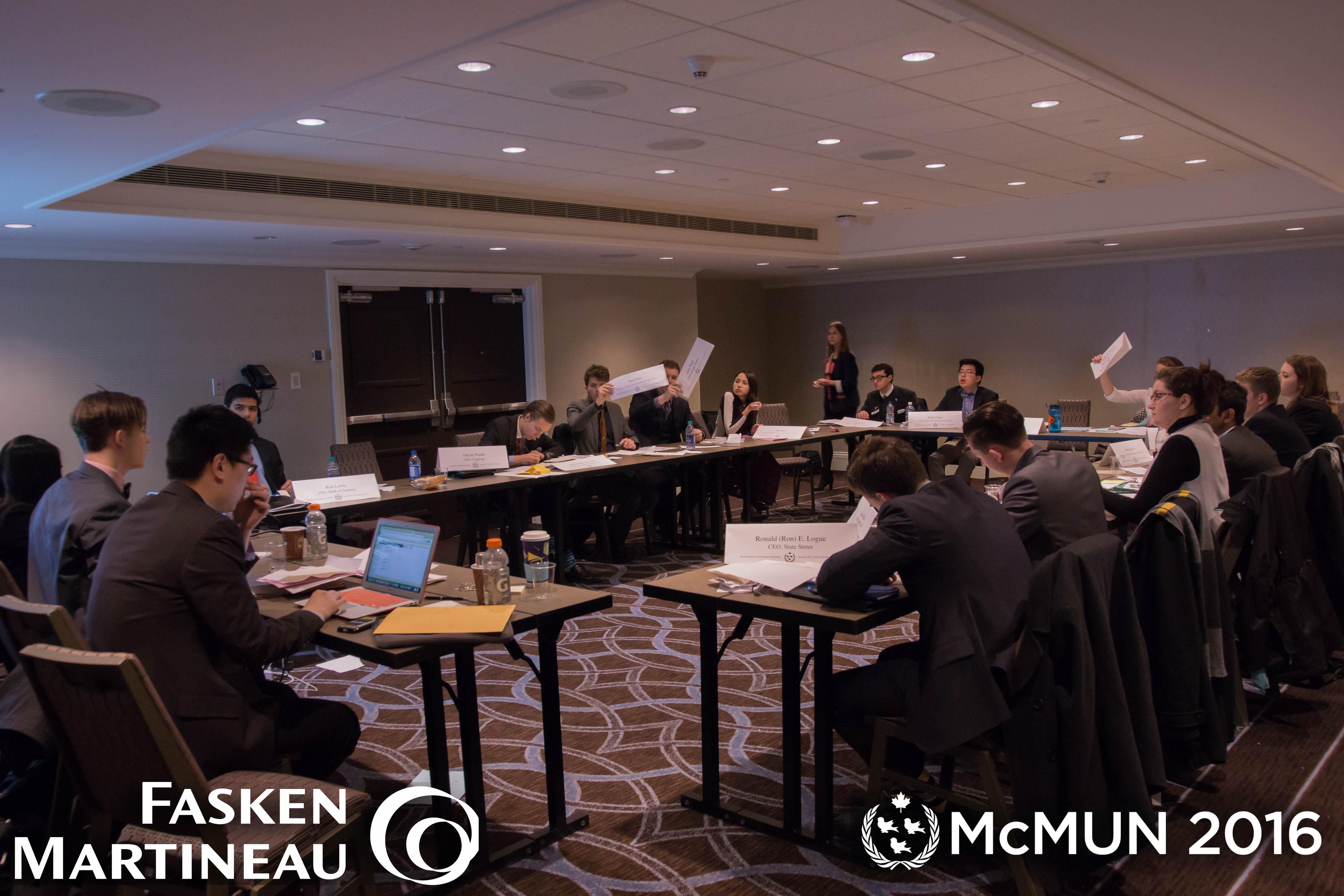The Blame Game of Wall Street: overcoming doubt on both domestic and international fronts

On the morning of September 15 2008, the Lehman Brothers declared bankruptcy, introducing a chain of events that would throw Wall Street and the global market into a state of crisis and economic paralysis. Delegates assuming the roles of key figures in both the private and public sectors of the US economy were introduced to this crisis during the second “Too Big to Fail” committee meeting at McMUN. While certain ideological divisions between representatives for the federal government and CEOs of financial juggernauts within the committee were to be expected, the cleavages found within this crisis extended much further than the domestic squabble about who would be truly to blame for such systemic financial failures.
CEO of Goldman Sachs Ll oyd Blankfein proposed a directive emphasizing the importance of reaching out to foreign markets to help mitigate this meltdown. He insisted that there is no use for a “fatalist attitude” when facing this kind of adversity. Unfortunately, this commitment to reject any pessimistic or reactionary stance did not sit well with France’s foreign policy, and the country decided to freeze all US trading assets as an expressly punitive action. What France’s Minister of Finance Christine Lagarde demanded from the committee was to act in ways which would restore confidence and trust in the American economy, a demand that was echoed by an American public on the precipice of a recession and devastating financial loss.
oyd Blankfein proposed a directive emphasizing the importance of reaching out to foreign markets to help mitigate this meltdown. He insisted that there is no use for a “fatalist attitude” when facing this kind of adversity. Unfortunately, this commitment to reject any pessimistic or reactionary stance did not sit well with France’s foreign policy, and the country decided to freeze all US trading assets as an expressly punitive action. What France’s Minister of Finance Christine Lagarde demanded from the committee was to act in ways which would restore confidence and trust in the American economy, a demand that was echoed by an American public on the precipice of a recession and devastating financial loss.
The 2008 crisis was not only one of financial turmoil, but one that spoke directly to the psychological ramifications of having the “American Dream” ripped out of the foundation of a country built on the pillars of prosperity and a successful free market economy. Stabilizing banks could be done through federal bailouts and foreign investment, but how could one influence a country’s public perception in any meaningful way during a time of such urgency? After the stunning announcement from the French Minister of Finance, the committee stayed true to its goals of overcoming political differences and passed five different directives by the end of the session, one of which directly targeted public perception of the crisis. “Keep Confidence High”, proposed by Lloyd Blankfein, Ken Lewis and Ron Logue, suggested that the federal government should lower interest rates to 2%, in order to increase liquidity and bail out mid-market troubled banks, but most importantly encouraged an increased transparency in the government handling of this market failure, through public announcements and updates.
As the market failure unfolds and the problems that are given to the delegates will exponentially grow in complexity, the issue of assigning guilt and culpability will become increasingly less relevant. In order to survive this simulation, the delegates cannot simply formulate policies that satisfy the demands of foreign finance ministers. They will have to answer to the fears and insecurities of the American public, the body that has the most to lose in the blame game of Wall Street.
Photo credits to McMUN/Philip Nguyen-Powanda
